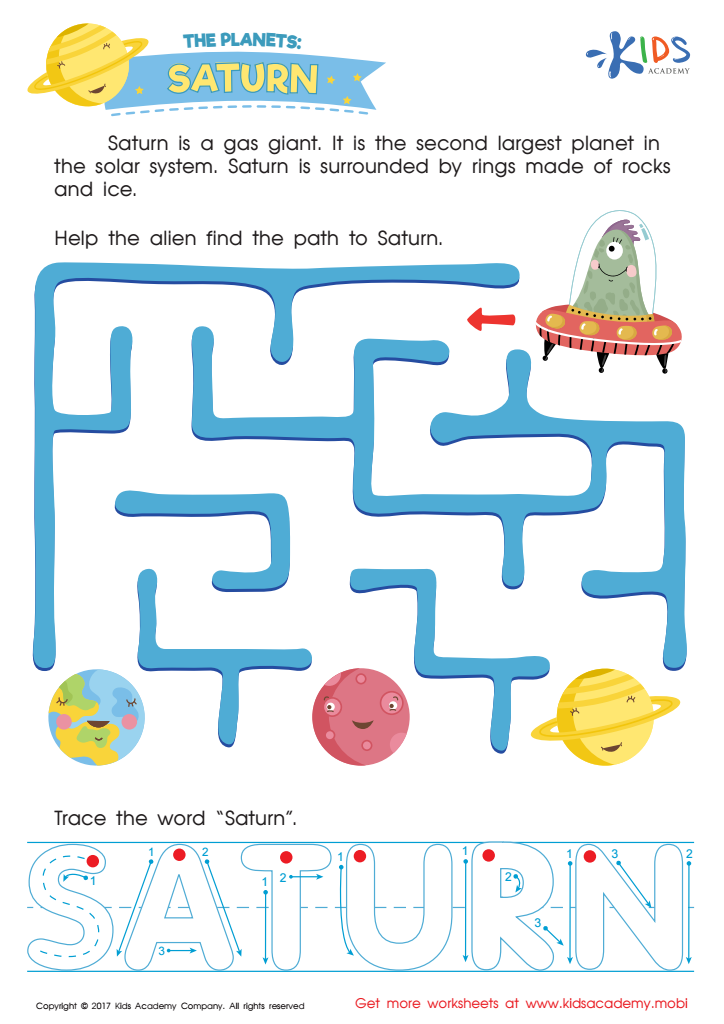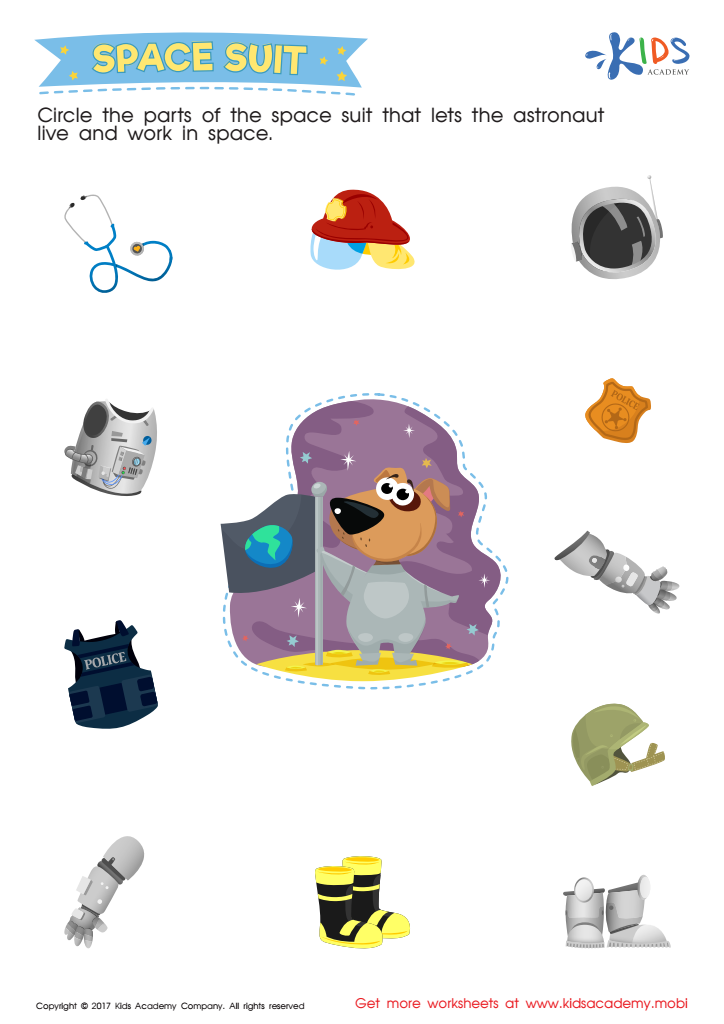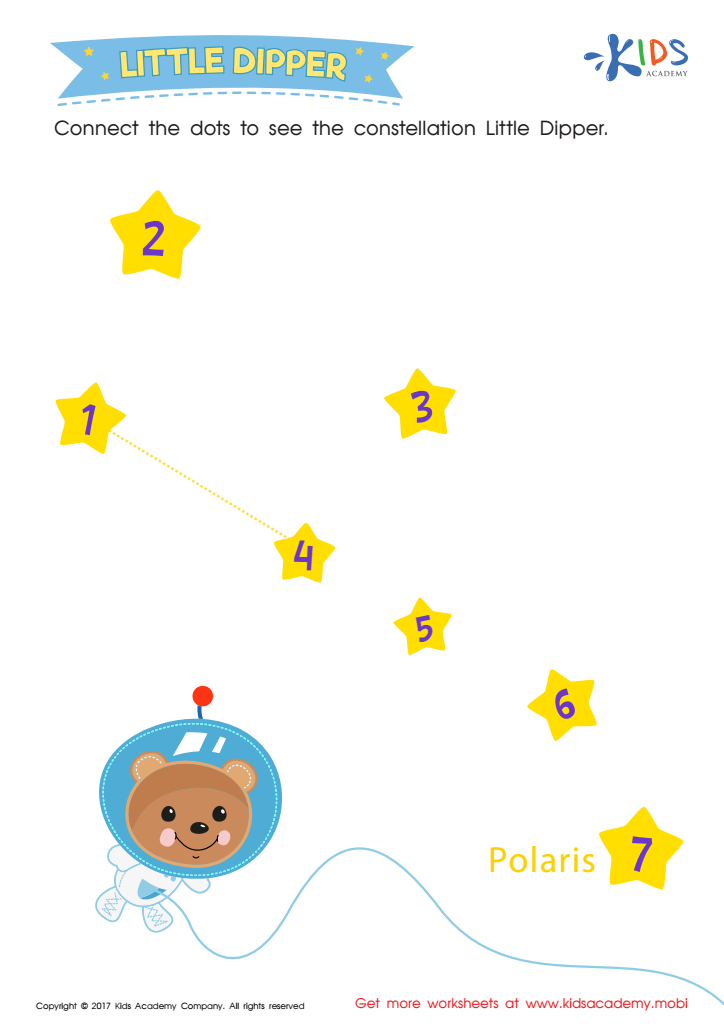Space Worksheets for Ages 6-8
4 filtered results
-
From - To
Explore the wonders of the universe with our engaging Space Worksheets for ages 6-8! Designed to ignite curiosity and enhance learning, these worksheets introduce young learners to fundamental space concepts, from planets to stars. Featuring colorful illustrations and age-appropriate activities, children will enjoy identifying celestial bodies, understanding the solar system, and engaging in fun, interactive exercises. Each worksheet encourages critical thinking and creativity, making learning about space an exciting adventure. Perfect for parents and educators, our easy-to-use resources help cultivate a love for science while developing essential skills. Download your worksheets today and embark on a thrilling journey through space!




The Planets: Saturn Printable
Parents and teachers should care about space for children aged 6-8 because it ignites curiosity and fuels a love for learning. At this age, children are naturally inquisitive, often asking "why" and "how." Studying space allows them to explore answers to these fundamental questions about our universe, from the moon and stars to planets and galaxies.
Space concepts foster critical thinking and problem-solving skills. Children can engage in hands-on activities like building solar systems or learning about gravity through fun experiments. These activities develop creativity and logical reasoning.
Additionally, discussing space encourages children to dream big and think about careers in science, technology, engineering, and mathematics (STEM). Familiarity with space concepts can inspire future astronauts, scientists, and engineers. Understanding our universe also highlights the importance of teamwork and collaboration, as many space explorations involve working together.
Lastly, engaging with space education promotes environmental awareness. Learning about Earth’s place in the cosmos can instill values of conservation and responsibility for our planet. Overall, incorporating space into teaching provides a rich tapestry of opportunities for shaping curious, informed, and inspired young minds.
 Assign to My Students
Assign to My Students

















